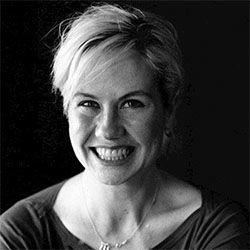Current Faculty
Each year, courses in Humanities First are taught by faculty from across the Humanities division. Faculty for Humanities 101: "Dreams and Nightmares" in Autumn, 2026, will be announced soon, so check back in to see who our fantastic instructors from across the division for the fall will be!
Humanities 102 (Winter 2026) and 103 (Spring 2026)
Sarah Stroup, the program director of Humanities First, is a professor in the department of Classics and the chair of the Department of Spanish and Portuguese Studies. Prof. Stroup received her undergraduate degrees from the University of Washington (BA Philosophy; BA Latin and Classical Studies), and her graduate degrees from the University of California, Berkeley MA Latin; PhD Classics). Prof. Stroup is interested in the intellectual and political history of the late Roman Republic, late Republican cryptography and doublespeak, ancient philosophy of science and knowledge, ancient sport and spectacle, and the advanced technologies of the Greeks and Romans. Prof. Stroup is a strong believer in the public, professional, and personal value of a humanities education, where our focus is on strategic and effective communication. Prof. Stroup can be reached at scstroup@uw.edu.
Sam Hushagen received his PhD in English literature from the University of Washington in 2019 after completing a dissertation on early-modern science and descriptive poetry. He researches the connections among poetry written between 1660 and 1850, philosophy of mind, and the history and philosophy of science to show how these areas can be seen in productive conjunction rather than as isolated pursuits. He is currently working on a book about landscape poetry and sense experience, and has published essays in The Wordsworth Circle, The William Carlos Williams Review, and Milton Quarterly. Sam began teaching at UW as a graduate student in the English department in 2013. Before pursuing his doctorate, Sam was a UW undergraduate in English and CHID. He joins Humanities First as an Instructor for Humanities 101, 102 and 103 and as Program Coordinator.

